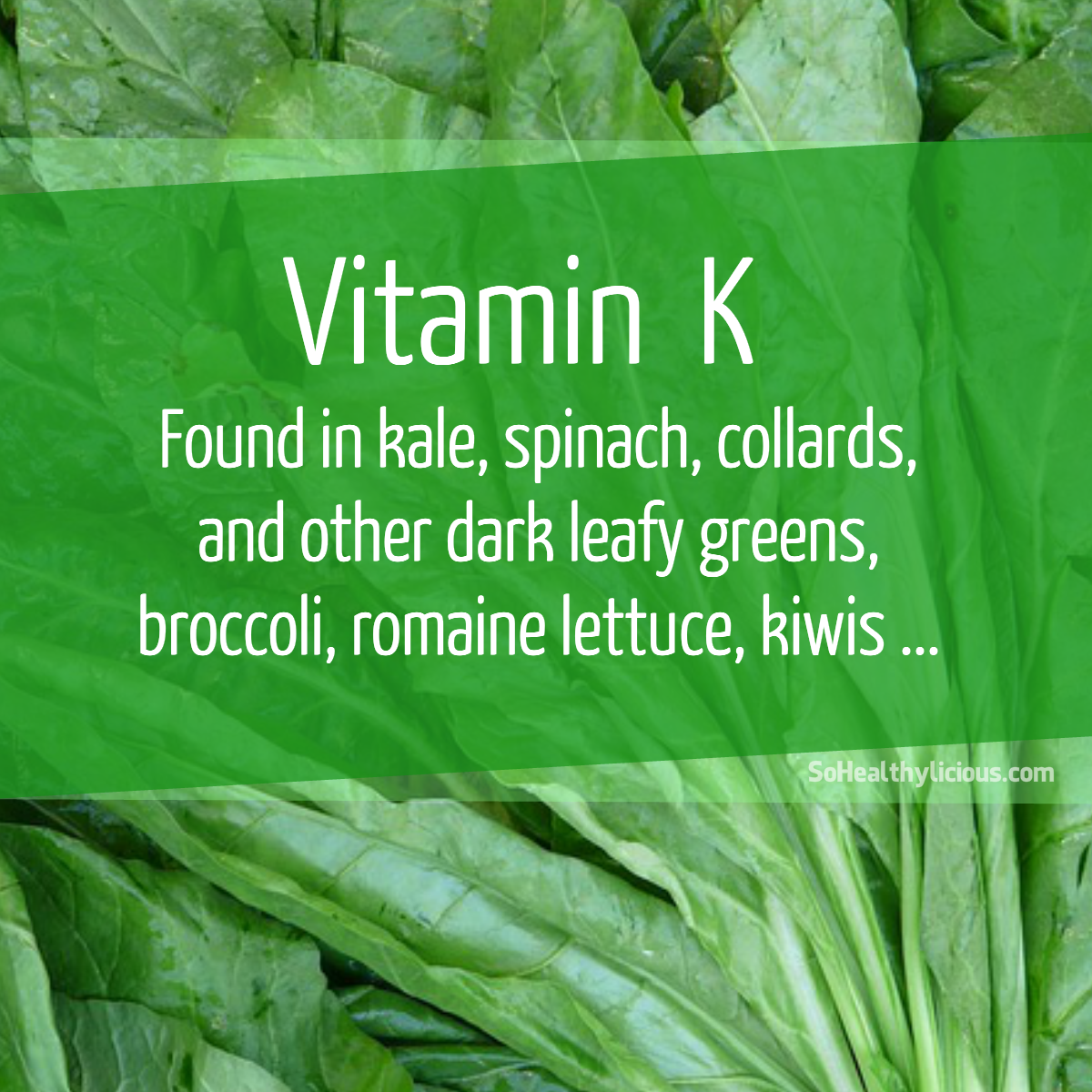
If you’re looking to add a healthy dose of vitamin K to your diet … then be prepared to “Go Green! Here are some excellent ways to get some “K” into your daily diet …
Foods High In Vitamin K
 By far, the best food sources are dark leafy greens like …
By far, the best food sources are dark leafy greens like …
- Kale
- Spinach
- Collards
- Beet Greens
- Mustard Greens
- Turnip Greens
- Swiss Chard
- Dandelion Greens
- Broccoli Raab
Steamed, sauteed, raw in salads or even juiced, these are all excellent ways to get your recommended daily serving of vitamin K.
A side dish of broccoli or peas will also add a punch of vitamin K to your diet. In fact, even just a few tablespoons of parsley can provide a decent serving of vitamin K.
Benefits of Vitamin K
Named from the German word “koagulation, the term “vitamin K” refers to a group of similar chemicals that all have the important function of aiding blood clotting.
Having the proper amount of clotting factor in your blood is important. Too little, and you’re at risk for bleeding and bruising. Too much, and you risk dangerous clotting and stroke. The clotting process itself is extremely complex, and vitamin K plays a big part in making it work.
In addition to helping your blood clot properly, vitamin K also helps to build strong bones. In fact, it is recommended for post-menopausal women to help prevent fractures from the bone loss associated with the hormonal changes of menopause.
Vitamin K Deficiencies
For adults, low levels of vitamin K have been associated with arthritis. Vitamin K helps to strengthen the proteins in the joints to protect from the pain and stiffness that arthritis can bring.
While most people aren’t at risk for deficiency, some conditions make low levels of vitamin K more likely. Alcoholics, for instance, have poor liver function that predisposes them to many vitamin deficiencies
Other conditions that can lead to poor vitamin K processing include cystic fibrosis and inflammatory bowel diseases. Bowel surgery can also cause difficulties with vitamin K absorption.
Getting Your “K” On-the-Go
If you want to get a fast, easy serving of vitamin K … have a kiwi. One kiwi contains about a third of the recommended daily intake.